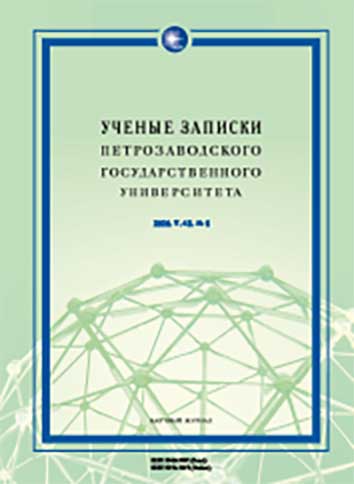РОССИЙСКИЕ УЧЕНЫЕ И ПУБЛИЦИСТЫ О РОЛИ КРЫМСКИХ ТАТАР В «КРЫМСКОЙ ВЕСНЕ»
VIEWS OF RUSSIAN SCHOLARS AND PUBLICISTS ON THE ROLE OF THE CRIMEAN TATARS IN THE “CRIMEAN SPRING”
Author(s): Ivan V. SavitskySubject(s): Politics / Political Sciences, Political history, Recent History (1900 till today), Inter-Ethnic Relations, Peace and Conflict Studies
Published by: Петрозаводский государственный университет
Keywords: Crimean Spring; Crimean Tatars; ethnopolitics; Russian historiography; national associations; ethnic integration;
Summary/Abstract: This paper investigates the materials of Russian authors published from 2014 to 2019, which deal with the role of the Crimean Tatars in the “Crimean Spring” and their attitude towards incorporating Crimea into the Russian Federation. Unlike issues connected with the earlier periods in the history of this ethnic group, this topic has not been thoroughly studied. Moreover, the importance and relevance of this historiographical research are determined by the complexity of integrating the Crimean Tatars into Russian society, politicization of this process and other related issues, and a large number of recent publications in various research areas. The paper aims to systematize the existing materials, identify distinctive and common features in these publications, and trace the continuity of the authors’ points of view on the Crimean Tatars’ activities during the events of 2014 (i. e., their participation in pro-Russian rallies in February and the Crimea’s status referendum in March, their attitude towards the statutory acts of the Russian government and the resulting economic and political situation in general). The research subject is the process of building a historiographical framework around the Crimean Tatars issue from thematic and chronological perspectives. The initial stage of the contemporary historiography development is characterized by publicistic flavor and polydisciplinary nature, therefore, the author uses the works of historians, ethnologists, political scientist, lawyers and journalists, classifying them by groups and research directions. The article identifies three directions in the studies of the Crimean Tatars: 1) the critical one, which negatively assesses the activities of the Crimean Tatars’ national organizations; 2) the loyal one, which focuses on the positive behavior of this ethnic group representatives; 3) and the ethnopolitical one, which seeks to provide a comprehensive analysis of all the aspects of the Crimean Tatars issue. The entire historiographical process can be conventionally divided into three periods without clear time boundaries: 1) the politicized period (from 2014 to early 2016); 2) the period of empirical research (from 2015 to late 2016); 3) and the period of scholarly understanding (since 2017). The author also emphasizes the persistence of pre-2014 historiographical traditions in the studies of the Crimean Tatars’ history; the lack of uniform interest in the national organizations’ activities among the researchers; certain blind spots and understudied areas in studying the role of such organizations in the events of 2014; and slow formation of the source base for examining this issue.
Journal: Ученые записки Петрозаводского государственного университета
- Issue Year: 42/2020
- Issue No: 6
- Page Range: 50-61
- Page Count: 12
- Language: Russian

